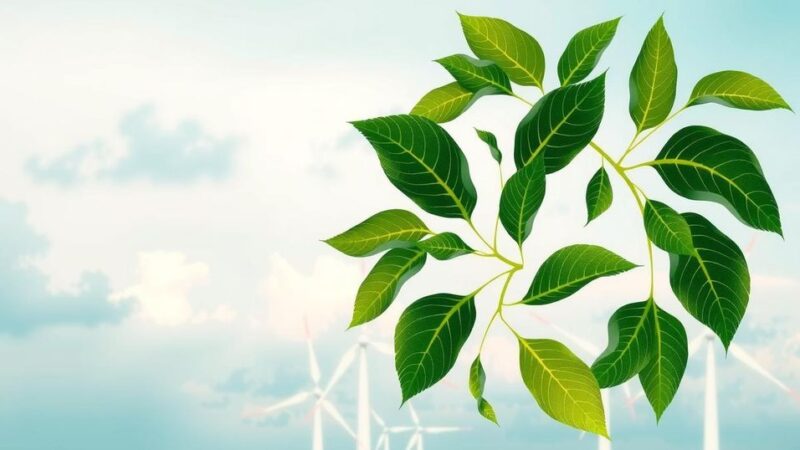The G20 has established principles focused on bioeconomy—a model reconciling economic development with environmental sustainability. Emphasizing nature-based solutions, the initiative seeks international collaboration to tackle climate change impacts, integrating various sectors in promoting clean energy and sustainable practices. Brazil plays a leading role in formulating guidelines and implementing strategies relevant to this agenda.
The G20 member countries have delineated crucial principles aimed at harmonizing development with sustainability through nature-based solutions, a key focus of the recent G20 summit. This initiative was part of Brazil’s G20 Presidency, which emphasized the importance of addressing the escalating impacts of climate change, evident in extreme weather events such as record temperatures, wildfires, and floods. The Bioeconomy Initiative, which convenes representatives from the world’s major economies, underscores the necessity of global coordination in implementing nature-based remedies. The concept of bioeconomy integrates economic growth with environmental stewardship, promoting an economy that moves away from reliance on fossil fuels towards one that prioritizes clean energy and minimizes ecological harm. In practical terms, every individual that engages in recycling, reusing materials, or opting for biodegradable products is contributing to the bioeconomy. During the concluding meeting of the G20 Bioeconomy initiative held in September in Rio de Janeiro, the attendees advocated for the adoption of the “Ten Voluntary and Non-Binding High-Level Principles on Bioeconomy.” These principles recommend involving indigenous communities in discussions, facilitating knowledge exchange among nations, developing comparable methods for assessing sustainability across various value chains, and encouraging the restoration of degraded ecosystems. Although the principles are not mandatory, all participating countries have committed to their implementation. Currently, bioeconomy accounts for approximately 25% of Brazil’s Gross Domestic Product, according to a study by the Getulio Vargas Foundation. In August, Brazil unveiled a National Strategy for Bioeconomy, aimed at establishing comprehensive guidelines in this area, along with a National Plan focused on enhancing bioindustrialization and related initiatives. The G20 discussions on bioeconomy revolve around three thematic pillars: Science, Technology, and Innovation for bioeconomy; Sustainable Biodiversity Utilization for bioeconomy; and the bioeconomy’s role in fostering sustainable development. The proposals are designed to reconcile economic growth, environmental sustainability, traditional knowledge, and global standards in response to climate challenges. Marina Silva, Brazil’s Minister of the Environment and Climate Change, stressed the importance of developing a multifaceted bioeconomy that pervades various sectors of public administration, rather than being limited to environmental ministries. She argued that the absence of international standards obstructs coordinated global efforts on issues that could significantly foster a new development paradigm rooted in ecological transition. Minister Silva asserted that actions promoting bioeconomy must be driven by governmental initiatives alongside international collaboration for a transformative development model.
The article discusses the significant outcomes and initiatives regarding bioeconomy announced during the G20 summit. It outlines how bioeconomy, an approach that aims to synergize economic development and environmental conservation, is crucial in the face of escalating climate change phenomena. Brazil’s leadership in introducing principles for bioeconomy reflects a broader commitment to integrating sustainable practices into national and global policies. The need for international cooperation and shared methodologies is highlighted to effectively implement these principles within and across nations.
In conclusion, the G20’s advancements regarding bioeconomy establish an important framework for promoting sustainable development while addressing pressing climate change challenges. The consensus among member nations to adopt voluntary principles signifies a collective move towards integrating ecological considerations into economic practices. Through continued collaboration and implementation of these principles, there is potential for a transformative shift towards a bioeconomy that prioritizes environmental integrity and sustainable development, enhancing the global response to climate issues.
Original Source: www.g20.org






